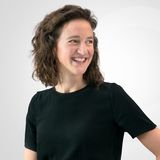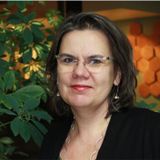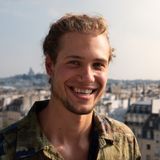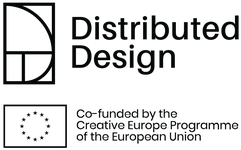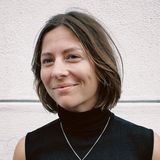Circular cities, donut economics, regenerative design. These are concepts that we will think, talk and do more with in the past few years. New economic, industrial, and design principles to move toward an ecological and socially sustainable future. In this workshop, we will challenge participants to a regenerative way of thinking. Is it possible to make regeneration more ‘mainstream’? Can regenerative design help to reach our sustainable ambitions? What are the next steps we must take to move toward a truly sustainable economy? What can we do as a city, designer, or consumer?
In previous Distributed Design programs, we have invited designers and researchers to share their experiences, concepts, and bottlenecks. We have learned about the movement of designs across the globe, using locally sourced and used materials. The examples of these talented designers are promising, but if we zoom out we notice that we still live in a linear single-use economy.
The conversations in this workshop will lead to a program at Pakhuis de Zwijger in the fall, where we invite a broad group of citizens, policymakers, researchers, entrepreneurs, and bigger companies to present real problems for which we aim to investigate potential solutions. Join us in this workshop to develop a new future together.
Joke Dufourmont works as a Program Developer Circularity in Urban Regions at Amsterdam Institute for Advanced Metropolitan Solutions (AMS Institute) . In this role, she is responsible for consolidating the program in collaboration with other Program Developers, Research Fellows, and Principal Investigators, as well as public and private partners. Her primary aim is to valorize scientific research in translating it to innovative solutions that advance the city’s circular economy. In her work, she pays particular attention to advancing circularity as a systemic solution to achieve human prosperity within planetary boundaries.As such, she continuously aims to connect the environmental with societal challenges and bridge the gap between science, policy, industry, and people.
Inge Oskam is a lecturer in Circular Design & Entrepreneurship at the Amsterdam University of Applied Sciences (HvA) . Inge specializes in practice-oriented research at the interface of design, technology, and business, focusing on the transition to a circular city. She leads research into the possibilities for reusing residual materials in circular products and system innovations for closing urban material cycles. The research focuses not only on the concrete solution but also on the circular business models and the cross-sectoral collaboration that is required for this. Developing tools and methods is an integral part of this.
Felix Bruns is a Community Builder & Intervention Producer at Climate Cleanup Foundation , an independent entrepreneurial non-profit funded by members. They pioneer systemic interventions to enable carbon return on land, in oceans, rocks, and constructions. Climate Cleanup fosters the fundamental conditions for the regenerative new nature economy. Natural Climate Solutions can provide over 30% of the solution to reverse climate change, but do not receive even 3% of funding. They are closing this gap by creating conditions for entrepreneurs and organizations to flourish.

